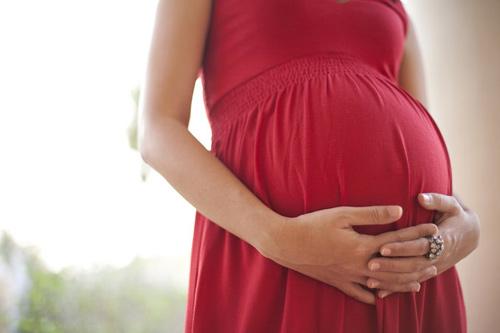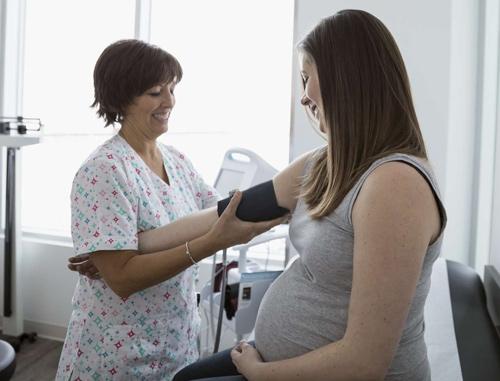You are here
Slightly high blood pressure before pregnancy tied to miscarriage risk
By Thomson Reuters Foundation - Apr 03,2018 - Last updated at Apr 03,2018

Photo courtesy of livescience.com
Women with slightly elevated blood pressure before they get pregnant may have an increased risk of miscarriage even when they are not diagnosed with hypertension, a US study suggests.
Researchers examined data on 1,228 women with at least one previous pregnancy loss who were trying to conceive. Out of the 797 participants who became pregnant during the study, 188, or about 24 per cent, had a miscarriage.
Even when their blood pressure was in a healthy range before pregnancy, each 10mmHg (millimeters of mercury) increase in systolic blood pressure — the “top” number — was associated with an 8 per cent higher risk of miscarriage, the study found.
Each 10mmHg increase in diastolic blood pressure — the “bottom” number — was associated with an 18 per cent greater chance of miscarriage even when women didn’t have hypertension before conception.
“Our study adds to evidence suggesting the importance of addressing high blood pressure among young women, both for their future cardiovascular health and potentially for their reproductive health as well,” lead study author Carrie Nobles of the Eunice Kennedy Shriver National Institute of Child Health and Human Development in Bethesda, Maryland, said by e-mail.
The American Heart Association defines hypertension, or high blood pressure, as a systolic reading of 130mmHg or higher and diastolic readings of 80mmHg or higher. Systolic pressure reflects the pressure blood exerts against artery walls when the heart beats. Diastolic pressure indicates the pressure when the heart rests between beats.
At the start of the study, the average systolic blood pressure was 112mmHg and the average diastolic pressure was 73mmHg.
Most participants were white and overweight or obese, and they were 29 years old on average.
Roughly two-thirds had experienced one pregnancy loss, and the rest had gone through two miscarriages before joining the study.
Among the women who did conceive during the study, those who again had a miscarriage had slightly higher blood pressure than women who had a live birth, researchers report in Hypertension.
The study was not a controlled experiment designed to prove whether or how slight elevations in blood pressure might contribute to miscarriages. Researchers lacked data to examine the connection between blood pressure and different types of pregnancy loss.
Because all of the women had at least one previous miscarriage, it’s also possible that the results might not apply to women without a history of pregnancy loss, Simon Timpka, a researcher at Lund University Diabetes Centre and Skane University Hospital in Malmo, Sweden, said by e-mail. Timpka wasn’t involved in the study.
Even so, the results underscore that a healthy lifestyle is essential for women who are trying to conceive, said Dr Suzanne Steinbaum, a spokesperson for the American Heart Association’s Go Red for Women campaign.
Women should exercise regularly and follow the Dietary Approaches to Stop Hypertension diet or a Mediterranean-style diet to help maintain a healthy weight and keep blood pressure and cholesterol at healthy levels, Steinbaum, who wasn’t involved in the study, said by email. Both diets emphasise cooking with vegetable oils with unsaturated fats, eating nuts, fruits, vegetables, low-fat dairy products, whole grains, fish and poultry, and limiting red meat and added sugars and salt.
All women of reproductive age should take steps to keep their blood pressure at a healthy level, even if they are not trying to conceive and don’t have a history of miscarriage, said Dr Laura Benschop, a researcher at Erasmus Medical Centre, Rotterdam, in the Netherlands who was not involved in the study.
“Previous studies [in women with hypertension] showed that a high blood pressure increases the risk for miscarriage,” Benschop said by e-mail. “The current study examined women with normal blood pressure, and results show that women with a higher preconception or early pregnancy blood pressure, though within the normal range, are more at risk for a miscarriage.”
Related Articles
High blood pressure during pregnancy has long been linked to greater odds of redeveloping the condition in middle age, but a new study sugge
Infants and preschoolers who gain weight rapidly may have higher-than-average high blood pressure later in childhood, a US study sugge
Women who develop preeclampsia, a form of dangerously high blood pressure during pregnancy, may face a wide variety of heart problems long a

















